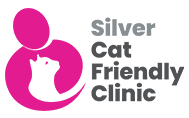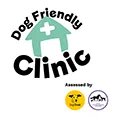Sadly, antifreeze kills many cats, dogs and wildlife in the UK each Winter so it's important to know the signs and what to do.
Nobody enjoys scraping the frozen windows of their car in the winter, so we often take advantage of products like anti-freeze to quickly defrost the windows. But this everyday substance could prove fatal to your cat if they get hold of it.
The problem with Actifreeze is that it's often sweet tasting and very appealing to cats and other animals, who may easily come across bottles or tubs in garages, sheds and around our homes in the Winter. Due to its desirable taste, they will often drink the liquid containing ethylene glycol, which the body very quickly absorbs. Within only a few short hours, it causes severe kidney damage, which is difficult to treat and in many cases, proves fatal.
Vets Now are an Emergency Out of Hours service that see many poisoning cases, they report that out of 25 cases, 96% of those who consumed antifreeze died as a result.
Know the signs
- Lethargy - your pet may seem quieter than normal and they may be moving less.
- Vomiting - your pet may have been sick.
- Drinking - your pet may start drinking more
- Wobbly - your pet may appear unsteady on its legs, as though drunk.
- Seizures - your pet may start shaking and having fits,
- Pain/discomfort - your pet will likely experience pain as the kidneys start to fail.
What to do next?
Call us immediately if you notice any of these signs and suspect your pet may have been poisoned, the quicker your pet is treated, the better it's chance of survival.
Telephone 01905 355938 or for our out of hours team call 01905 780404
Your pet will require intensive treatment and care from the vets, however kidney damage is very serious and not all animals will recover despite being treated early.
Avoiding Poisoning
Prevention is better than cure (as sadly cure isn't always possible with antifreeze poisoning), so if possible just don't use it and buy yourself a good scraper and wrap up warm instead.
- If this really isn't an option, ensure all spills are cleaned up quickly and thoroughly, animals may find antifreeze on the car or road surface and lick it off, so be careful not to use excessive amounts and avoid spills on pavements and driveways (wash them off if you do spill any).
- If you decant products into other storage bottles, make sure they can't leak/spill and re-label the bottles so that you know what is inside.
- Keep animals away from areas where potentially toxic products are stored (sheds/garages etc).
- If you normally add antifreeze to ponds and water features to prevent them from freezing during the winter, we'd recommend searching for alternatives that don't contain ethylene glycol. Even if you don't own cats, your neighbours will appreciate you keeping their cats safe, as they could wander into your garden.








